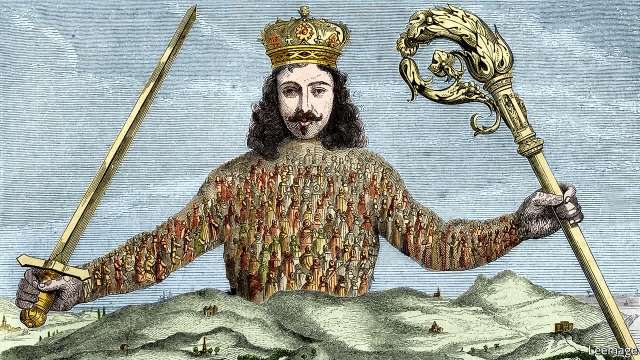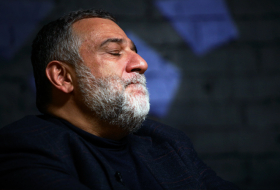The gathering wreckage of liberalism’s twilight years can be seen all around, especially in America, Mr Deneen’s main focus. The founding tenets of the faith have been shattered. Equality of opportunity has produced a new meritocratic aristocracy that has all the aloofness of the old aristocracy with none of its sense of noblesse oblige. Democracy has degenerated into a theatre of the absurd. And technological advances are reducing ever more areas of work into meaningless drudgery. “The gap between liberalism’s claims about itself and the lived reality of the citizenry” is now so wide that “the lie can no longer be accepted,” Mr Deneen writes. What better proof of this than the vision of 1,000 private planes whisking their occupants to Davos to discuss the question of “creating a shared future in a fragmented world”?
Mr Deneen uses the term “liberalism” in its philosophical rather than its popular sense. He is describing the great tradition of political theory that is commonly traced to Thomas Hobbes and John Locke rather than the set of vaguely leftish attitudes that Americans now associate with the word. But this is no work of philosophical cud-chewing. Most political theorists argue that liberalism has divided into two independent streams: classical liberalism, which celebrates the free market, and left-liberalism which celebrates civil rights. For Mr Deneen, they have an underlying unity. Most political observers think that the debate about the state of liberalism has nothing to do with them. Mr Deneen argues that liberalism is a ruling philosophy, dictating everything from court decisions to corporate behaviour. A theory is a practice.
The underlying unity lies in individual self-expression. Both classical and left liberals conceive of humans as rights-bearing individuals who should be given as much space as possible to fulfil their dreams. The aim of government is to secure rights. The legitimacy of the system is based on a shared belief in a “social contract” between consenting adults. But this produces a paradox. Because the liberal spirit mechanically destroys inherited customs and local traditions, sometimes in the name of market efficiency and sometimes in the name of individual rights, it creates more room for the expansion of the state, as market maker and law-enforcer. The perfect expression of modern liberalism is provided by the frontispiece of Hobbes’s “Leviathan” (detail pictured), with its sketch of thousands of atomised individuals confronted by an all-powerful sovereign.
Mr Deneen makes his case well, though he sometimes mistakes repetition for persuasion. He reminds the reader that, before the advent of modern liberalism, philosophers identified liberty with self-mastery rather than self-expression, with the conquest of hedonistic desires rather than their indulgence. He does an impressive job of capturing the current mood of disillusionment, echoing left-wing complaints about rampant commercialism, right-wing complaints about narcissistic and bullying students, and general worries about atomisation and selfishness. But when he concludes that all this adds up to a failure of liberalism, is his argument convincing?
His book has two fatal flaws. The first lies in his definition of liberalism. J.H. Hexter, an American academic, believed his fellow historians could be divided into two camps: “splitters” (who were forever making distinctions) and “lumpers” (who make sweeping generalisations by lumping things together). Mr Deneen is an extreme lumper. He argues that the essence of liberalism lies in freeing individuals from constraints.
In fact, liberalism contains a wide range of intellectual traditions which provide different answers to the question of how to trade off the relative claims of rights and responsibilities, individual expression and social ties. Even classical liberals who were most insistent on removing constraints on individual freedom agonised about atomization. The mid-Victorians were great institution-builders, creating everything from voluntary organisations to joint-stock companies (“little republics” in the phrase of Robert Lowe, a 19th-century British statesman) that were designed to fill the space between the state and society. Later liberals experimented with a range of ideas from devolving power from the centre to creating national education systems.
Mr Deneen’s fixation on the essence of liberalism leads to the second big problem of his book: his failure to recognise liberalism’s ability to reform itself and address its internal problems. The late 19th century saw America suffering from many of the problems that are reappearing today, including the creation of a business aristocracy, the rise of vast companies, the corruption of politics and the sense that society was dividing into winners and losers. But a wide variety of reformers, working within the liberal tradition, tackled these problems head-on. Theodore Roosevelt took on the trusts. Progressives cleaned up government corruption. University reformers modernised academic syllabuses and built ladders of opportunity. Rather than dying, liberalism reformed itself.
Mr Deneen is right to point out that the record of liberalism in recent years has been dismal. He is also right to assert that the world has much to learn from the premodern notions of liberty as self-mastery and self-denial. The biggest enemy of liberalism is not so much atomisation but old-fashioned greed, as members of the Davos elite pile their plates ever higher with perks and share options. But he is wrong to argue that the only way for people to liberate themselves from the contradictions of liberalism is “liberation from liberalism itself”. The best way to read “Why Liberalism Failed” is not as a funeral oration but as a call to action: up your game, or else.
This article appeared in the Economist.
More about: liberalism















































